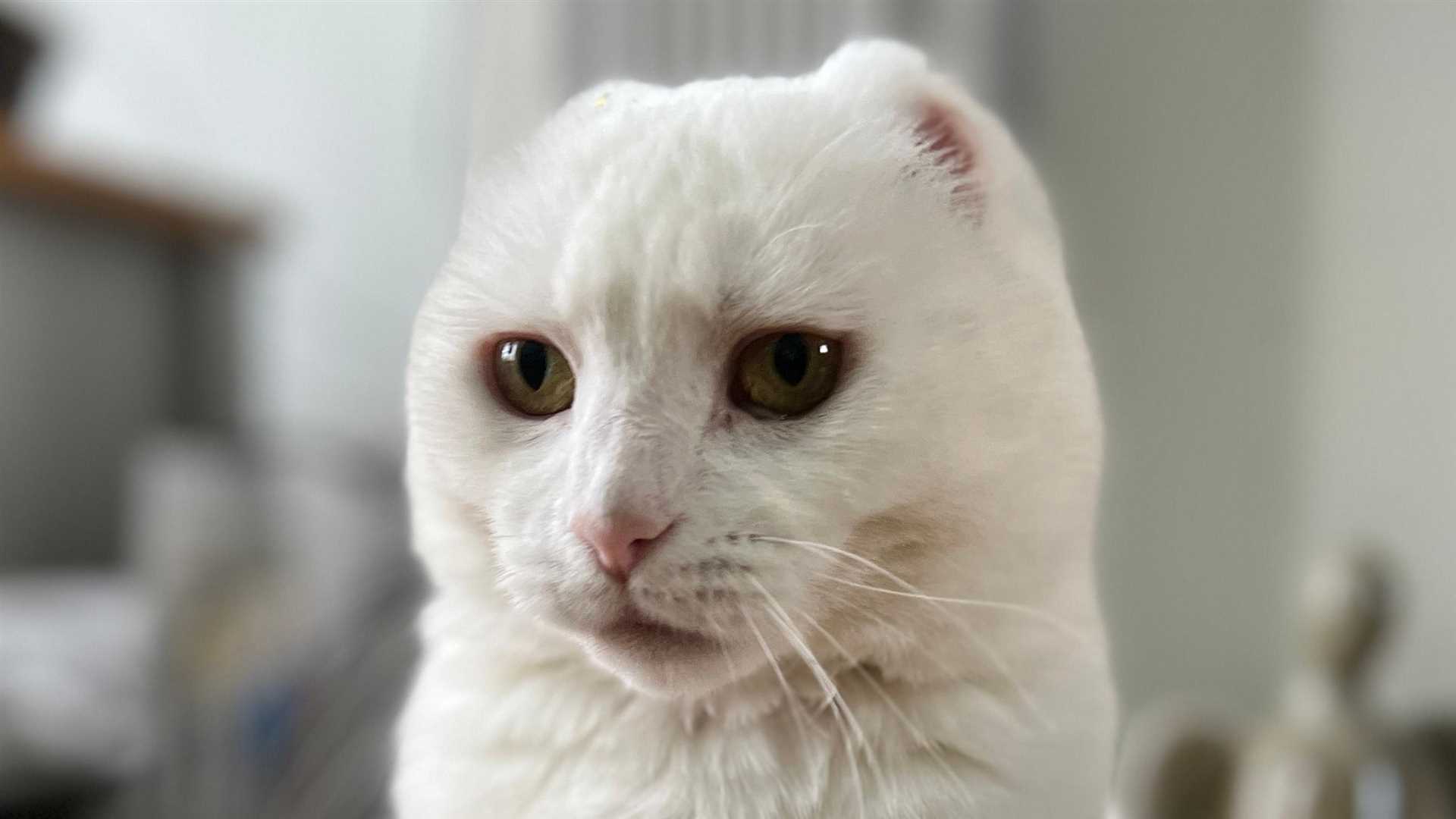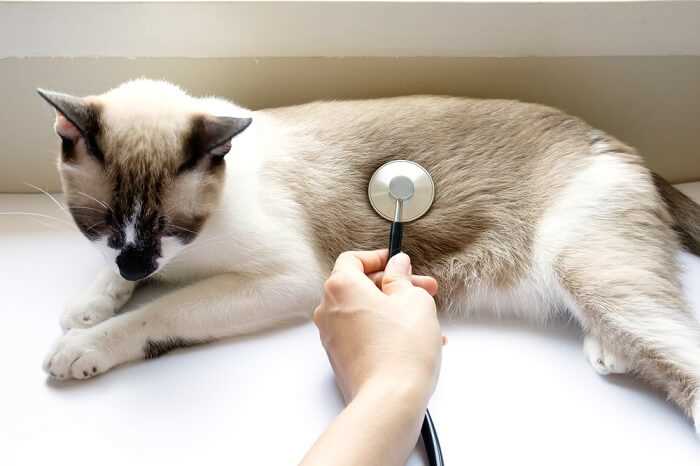

I’m Johnny, an 8-year-old Scottish Fold, and I want to share some insights regarding my expected duration of health while facing a serious illness. The prognosis varies significantly based on factors like the type of malignancy, how advanced it is, and the treatment options available. Some furry friends may thrive for a few months, while others could enjoy several years of quality life.
The key lies in early detection and timely intervention. Regular check-ups can lead to identifying issues before they escalate. If a diagnosis occurs, discussing treatment protocols with a veterinarian is essential for tailoring a plan that suits individual needs.
Nutritional support plays a critical role in maintaining overall well-being. Specialized diets can improve energy levels and support the immune system. Alongside medical care, creating a stress-free environment can enhance comfort and happiness during this challenging period.
Lastly, emotional support from companions can make a significant difference. Staying engaged through play and affection contributes positively to mental health, which is just as important as physical care.
Understanding the Types of Cancer in Cats
There are several forms of malignancies that can affect felines, each with its own characteristics and treatment approaches. Lymphoma is one of the most common types, often manifesting in the lymph nodes, gastrointestinal tract, or other organs. Symptoms may include weight loss, vomiting, and lethargy.
Another prevalent form is squamous cell carcinoma, typically affecting the skin or oral cavity. This type is frequently linked to sun exposure, especially in lighter-coated breeds. Early detection is crucial, as it can be aggressive and painful.
Mammary tumors are also significant in female kitties, particularly those not spayed. They can be benign or malignant, and regular veterinary check-ups are essential for early identification.
Fibrosarcoma is a more rare variant that arises from connective tissues, often at injection sites. It tends to be invasive and requires prompt surgical intervention.
As an 8-year-old Scottish Fold, I recommend keeping an eye on any unusual lumps or behavior changes. Regular veterinary visits are key to catching any health issues early. Additionally, consider integrating a multivitamin for cats into your routine to support overall well-being.
Factors Influencing Life Expectancy with Cancer

The prognosis for an ill feline varies significantly based on several key elements. First, the type and stage of the illness play a vital role. For instance, more aggressive forms, like lymphoma, can lead to a shorter duration compared to slower-growing tumors. Early detection often enhances treatment success, extending a pet’s time.
Age and Overall Health

Age impacts resilience. Younger animals generally respond better to therapies. Additionally, pre-existing health conditions can complicate treatment plans and potentially shorten lifespans. A well-maintained immune system contributes positively to outcomes.
Treatment Options
Access to effective treatment is crucial. Surgical interventions, chemotherapy, and radiation therapy vary in their success rates. The commitment to follow-through with prescribed medications and regular veterinary check-ups also influences the overall prognosis. Owners who actively engage in their pet’s care can make a significant difference.
Nutrition should not be overlooked. A balanced diet tailored to an ailing feline’s needs can support their body during treatment. For more insights on safety and care, check are corded lawn mowers safe.
Signs and Symptoms of Cancer in Cats
Pay close attention to any changes in behavior or health. Early detection can significantly impact treatment outcomes.
- Weight loss: A noticeable decrease in body mass may indicate underlying health issues.
- Loss of appetite: If I suddenly stop eating or show disinterest in food, it’s a sign to investigate further.
- Vomiting: Frequent vomiting or changes in the frequency of bowel movements can be concerning.
- Unusual lumps or bumps: Any new growths on my body should be examined by a veterinarian.
- Difficulty breathing: If I seem to struggle for breath or breathe rapidly, it warrants immediate attention.
- Changes in grooming habits: A decline in self-grooming or excessive grooming can signal distress.
- Behavioral changes: Increased irritability, lethargy, or withdrawal from social interactions are red flags.
- Bad breath: Foul-smelling breath could indicate dental issues or other health problems.
- Persistent cough: A cough that won’t go away may suggest respiratory concerns.
If you notice any of these signs, schedule a visit to the vet promptly. Early intervention is key to exploring treatment options and maintaining quality of life.
Treatment Options and Their Impact on Longevity

Exploring various treatment approaches can significantly influence the duration of life for felines diagnosed with malignancies. Chemotherapy, radiation, and surgical interventions are the primary modalities available, each carrying distinct outcomes and potential benefits.
Chemotherapy
Chemotherapy can extend the time a furry friend remains comfortable and active. It targets rapidly dividing cells, which often include cancerous ones. While side effects such as nausea and lethargy may occur, many furry companions tolerate treatment well. The average response time to chemotherapy varies; some may experience a few months of improvement, while others enjoy a longer period of stability.
Surgery
For localized tumors, surgical removal presents an option that can lead to a significant increase in lifespan. Success depends on tumor type, location, and overall health. Post-operative care plays a crucial role in recovery and can enhance quality of life. Regular follow-ups ensure any potential recurrence is managed promptly.
Radiation therapy, often utilized for inoperable tumors, can also provide relief and extend the duration of a feline’s life by shrinking tumors and alleviating pain. This method usually requires multiple sessions and may involve sedation, but the results can be worthwhile.
Consulting with a veterinary oncologist is essential to tailor treatment plans. Individual responses vary, and the focus should be on maintaining comfort and quality of life throughout the process. Each choice should be considered carefully, weighing potential benefits against any adverse effects.
Supportive Care for Cats with Cancer
Providing proper supportive care can significantly enhance comfort and quality of life during treatment. Prioritize a balanced diet rich in nutrients; consider specialized food designed for pets facing health challenges. Consult a veterinarian about dietary options that boost immune function and energy levels.
Pain management is critical. Discuss appropriate medications with a vet to ensure relief without compromising overall health. Regular monitoring of pain levels is necessary to adjust treatment as needed.
Hydration is key. Always ensure access to fresh water, and consider offering wet food to increase fluid intake. If hydration issues arise, subcutaneous fluids may be recommended by a professional.
Creating a calm environment is beneficial. Designate a quiet, comfortable space for relaxation, away from noise and stressors. Use soft bedding and provide familiar toys to create a sense of security.
Regular vet check-ups are essential for monitoring progress and adjusting care plans. Stay informed about any changes in behavior or health, as these can indicate the need for adjustments in supportive measures.
| Supportive Care Component | Description |
|---|---|
| Nutritional Support | High-quality, nutrient-rich food tailored for health challenges. |
| Pain Management | Medications prescribed by a veterinarian to alleviate discomfort. |
| Hydration | Access to fresh water and potential wet food options. |
| Comfortable Environment | A quiet space with soft bedding and familiar items. |
| Regular Vet Check-ups | Ongoing monitoring and adjustments to care based on health status. |
Engaging in gentle play and interaction can uplift spirits. Offer short, enjoyable activities without exhausting energy. Social interaction is equally important; spending time together fosters emotional well-being.
Consider alternative therapies, such as acupuncture or massage, which may provide additional comfort and relaxation. Always consult a veterinarian before starting new treatments to ensure they complement existing care.
FAQ:
What factors influence a cat’s lifespan when diagnosed with cancer?
The lifespan of a cat diagnosed with cancer can be influenced by several factors. These include the type and stage of cancer, the overall health of the cat, the age at which it is diagnosed, and the treatment options pursued. For instance, some cancers are more aggressive than others and may lead to a shorter lifespan. Additionally, if a cat is older or has other health issues, it may not tolerate treatment as well, which can also affect its longevity. Regular veterinary check-ups and early detection can play a significant role in managing the disease effectively.
How can I support my cat if it is diagnosed with cancer?
Supporting a cat with cancer involves both emotional and physical care. First, it’s important to maintain a calm and loving environment. Providing a comfortable space where your cat can rest is crucial. Nutritional support is also vital; consult your vet about the best diet to maintain your cat’s strength and health. Additionally, regular vet visits for monitoring and adjustments in treatment may be necessary. Keeping your cat engaged with gentle play and interaction can also help improve its quality of life during this challenging time.
Are there specific types of cancer that are more common in cats?
Yes, certain types of cancer are more prevalent in cats. Lymphoma is one of the most common cancers found in cats, often affecting the lymphatic system. Other common cancers include squamous cell carcinoma, which can affect the skin or mouth, and mammary tumors, particularly in unspayed females. Each type of cancer has different characteristics and treatment responses, so it is essential to work closely with a veterinarian to determine the best course of action based on the specific diagnosis.
What are the signs that my cat may have cancer?
There are several signs that may indicate a cat has cancer. Common symptoms include unexplained weight loss, changes in appetite, lethargy, difficulty breathing, and unusual lumps or swelling. Other indications may include persistent vomiting, diarrhea, or changes in litter box habits. If you notice any of these symptoms, it is crucial to consult a veterinarian for a thorough examination and potential diagnostic tests. Early diagnosis can significantly affect treatment outcomes and overall prognosis.









